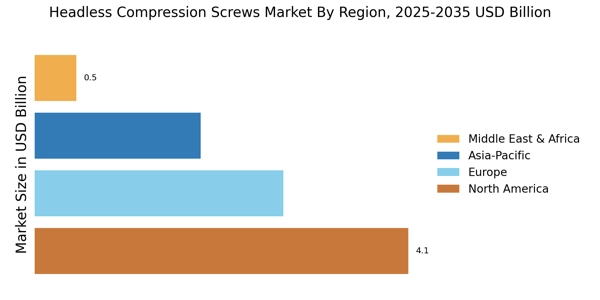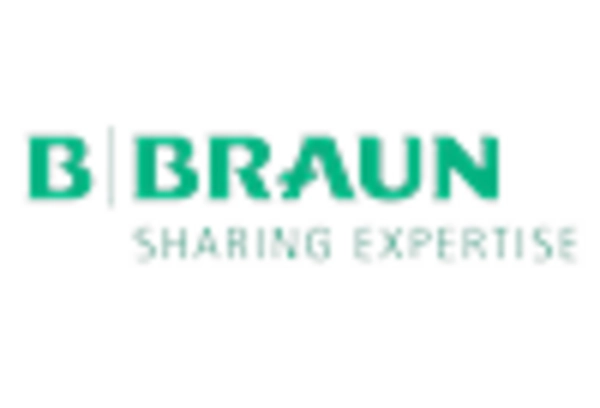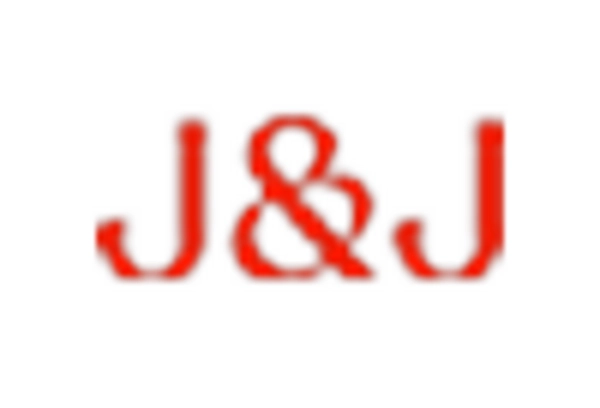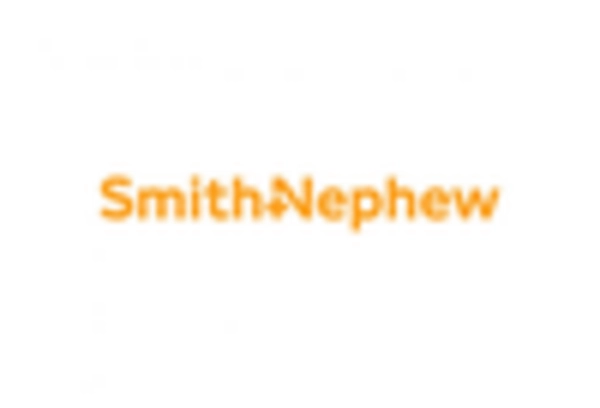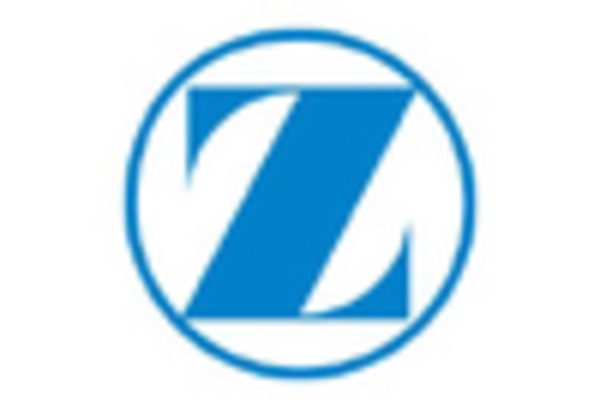Rising Geriatric Population
The rising geriatric population is a significant driver of the Headless Compression Screws Market. As the global population ages, the prevalence of age-related conditions such as osteoporosis and fractures is increasing. Older adults are more susceptible to injuries that require surgical intervention, leading to a higher demand for effective fixation devices. Headless compression screws are particularly advantageous in this demographic due to their design, which minimizes soft tissue irritation and promotes faster recovery. Market analysts project that the demand for headless compression screws will likely rise in tandem with the aging population, potentially increasing market growth by 10% over the next several years as healthcare providers seek to improve surgical outcomes for elderly patients.
Growing Incidence of Sports Injuries
The rising incidence of sports injuries is significantly influencing the Headless Compression Screws Market. As participation in sports and physical activities continues to grow, the number of related injuries, particularly fractures, is also on the rise. This trend is particularly evident among younger populations, where active lifestyles lead to a higher risk of injuries. Consequently, there is an increasing need for effective fixation solutions, such as headless compression screws, which are favored for their ability to provide stable support during the healing process. Market data suggests that the demand for these screws could increase by approximately 8% annually, driven by the need for effective treatment options in sports medicine.
Increased Investment in Orthopedic Research
Increased investment in orthopedic research is driving innovation within the Headless Compression Screws Market. Research institutions and medical device companies are focusing on developing advanced materials and designs that enhance the performance of headless compression screws. This investment is leading to the introduction of new products that offer improved biomechanical properties and biocompatibility, which are essential for successful surgical outcomes. Furthermore, collaborations between academia and industry are fostering the development of cutting-edge technologies that could revolutionize the market. As a result, the Headless Compression Screws Market is expected to benefit from these advancements, with market growth projected to reach 12% in the coming years as new products enter the market.
Technological Advancements in Surgical Tools
Technological advancements in surgical tools are playing a crucial role in shaping the Headless Compression Screws Market. Innovations such as improved imaging techniques and enhanced surgical instruments are facilitating more precise placements of headless compression screws. These advancements not only improve surgical outcomes but also reduce the risk of complications, thereby increasing the adoption of these screws in various surgical procedures. Furthermore, the integration of robotics and minimally invasive techniques is expected to drive the market further, as these technologies allow for greater accuracy and efficiency in surgeries. The market is anticipated to witness a surge in demand, with projections indicating a potential increase in market size by 15% over the next few years.
Surgeon Preference for Headless Compression Screws
The Headless Compression Screws Market is experiencing a notable shift in surgeon preferences towards headless compression screws due to their unique design and functionality. Surgeons increasingly favor these screws for their ability to provide stable fixation without the need for a prominent head, which can interfere with soft tissue healing. This preference is driven by the screws' effectiveness in various orthopedic procedures, particularly in the fixation of fractures and osteotomies. As a result, the demand for headless compression screws is projected to grow, with market estimates indicating a compound annual growth rate of approximately 6% over the next five years. This trend suggests that as more surgeons adopt these devices, the Headless Compression Screws Market will likely expand significantly.



